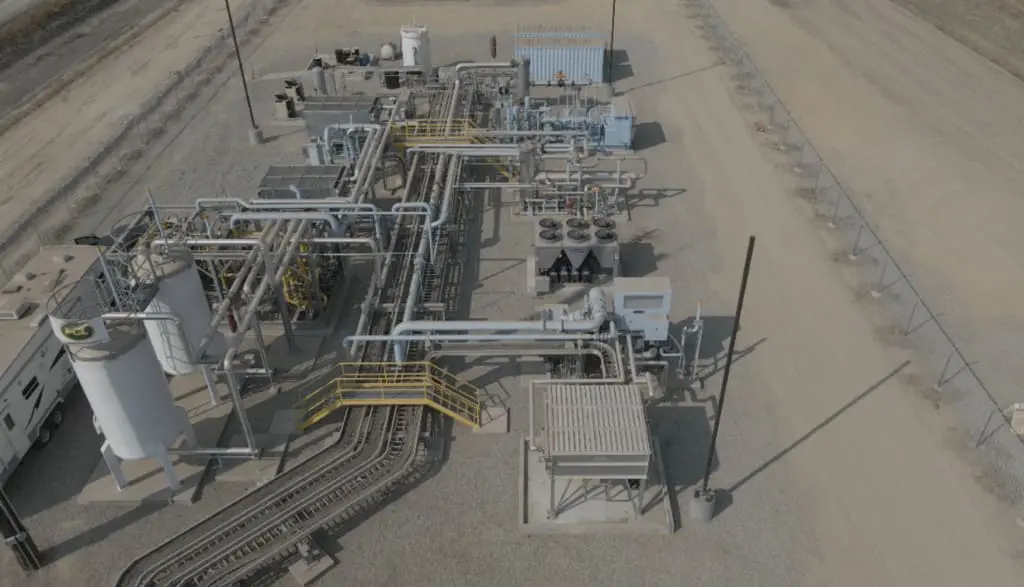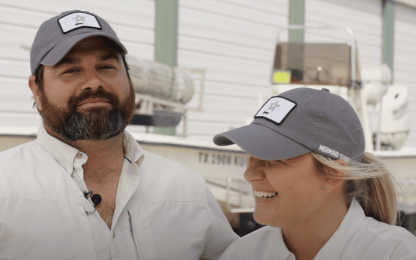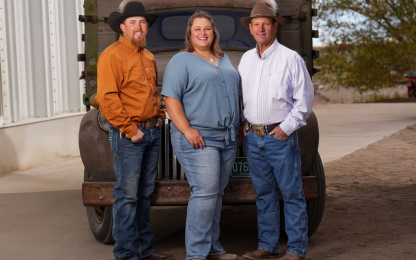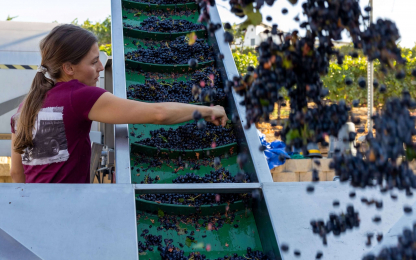AgWest Farm Credit supports the dairy industry, the environment and local communities by financing a methane converter project in California.
In less than a decade, California’s dairy industry—the nation’s leader in milk production and the state’s largest agricultural commodity—faces a daunting requirement: reduce greenhouse gas emissions from manure storage by 40 percent. Considering the industry’s 1.7 million dairy cows are the state’s largest agricultural methane producer, it’s an imposing task to accomplish by 2030—but given the economic stakes, a crucial one.
Farm Credit: financing the future
Deeply committed to its customers, AgWest Farm Credit has taken bold action and become the principle financier of a solution to this challenge. It’s a solution that simultaneously helps dairy producers reduce their emissions and meet the state mandate, while also providing cleaner air and economic vitality to some of California’s most under-served areas.
AgWest Farm Credit has partnered with California Bioenergy (CalBio), a dairy digester developer, Chevron U.S.A. and California dairy farmers to build three clusters of methane digesters and upgraders across California’s southern Central Valley.
The digesters and upgraders, built by CalBio, repurpose methane released from dairy manure by first capturing, then converting it to renewable natural gas (RNG). The methane captured in digesters at the dairy farms is sent to a centralized processing facility where it is upgraded to RNG and injected into local utility SoCalGas and PG&E’s pipelines. The RNG is then marketed as an alternative fuel for heavy-duty trucks and buses, many of which regularly travel the Central Valley corridor.
A win-win-win
AgWest Farm Credit’s plan moving forward comprises 17 digester sites in three different clusters across Kern, Tulare and Kings counties. Dairy owners provide the manure and the site on which to build the digester. The farmers then receive a percentage of the profits from the sale of RNG, as well as renewable energy credits from California’s cap-and-trade energy market and the National Renewable Fuel Standards program.
In addition to providing an elegant solution to the dairy industry’s looming emissions-reduction mandate, this project attracts numerous construction and engineering jobs to the state’s Central Valley, an area that struggles with high rates of poverty and joblessness.
AgWest Farm Credit Senior Vice President Jonathan Kennedy has been working on the project for more than a year. He describes it a win-win-win for California.
“This project is good for all the stakeholders involved,” Jonathan said. “Cleaner air benefits not just agriculture, but the whole community. In terms of the dairy industry, it provides additional viable income. And the communities where these will be built—some are the most impoverished in the state—will benefit from well paid, stable jobs.”
Farm Credit stepped up to the challenge
Jonathan, who has worked for AgWest Farm Credit for 31 years, says the deal was the most complex he’d ever worked on. Since they had never financed a digester project this large, the underwriting process involved numerous meetings with attorneys and real estate professionals; drawing up land leases and pipeline easements; drafting agreements between dairy farmers and CalBio; and determining the value of fuel and how it will be paid for, among other steps.
In the end, Farm Credit’s history of supporting local producers and experience with the dairy sector made the decision to finance a forward-thinking project with numerous benefits to the dairy industry, the environment and community an easy one.
“Our commitment to agriculture and to the dairy industry in all of California, and also the personal relationships we have with dairy producers, made it clear this is something we needed to be a part of,” Jonathan said. “Other banks may not have looked at it from that perspective.”
The project is owned by individual dairy farmers, Chevron, and California Bioenergy, LLC, whom all contributed significant equity. Farm Credit West, in conjunction with CoBank, provided $50 million in loan funding. Additional agencies provided support and capital too, including the California Air Resource Control Board, the California Department of Food and Agriculture, the California Energy Commission, the California Public Utilities Commission and the Natural Resources Conservation Service.
A perfect fit for Farm Credit’s mission
Farm Credit West President and CEO Mark Littlefield echoed Jonathan’s sentiments. In a video recorded for a virtual ribbon cutting in September 2020, Mark said providing the economic engine for this project fulfills AgWest Farm Credit’s mission to support agricultural producers and the communities they serve.
“The California Bioenergy project allows our customers to meet their business goals, strengthens rural economies, improves local air quality and contributes to a healthy, sustainable future,” Mark said. “For more than a century, Farm Credit West has supported rural communities and agriculture with consistent, reliable credit and financial services. As a member-owned cooperative, we are intimately connected to the pressures and opportunities facing dairy producers today, and it is our mission to develop unique solutions to help these growers thrive. We’ve been adapting and innovating with our customer-owners for the last one hundred years; we won’t stop now.”
A version of this article first appeared in AgWest Farm Credit’s Spotlight Magazine, titled, “Financing the Future,” by Sarah Kearbey.



